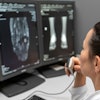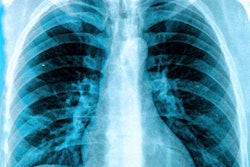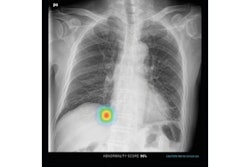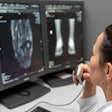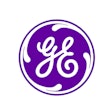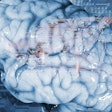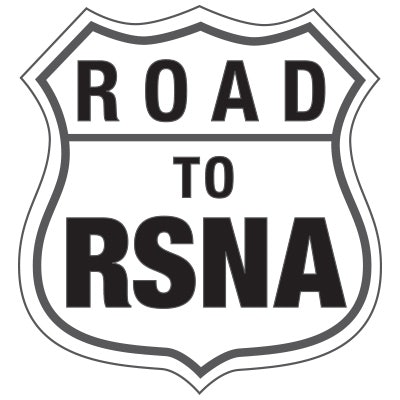
Welcome to the first installment of this year's Road to RSNA preview of the RSNA 2021 meeting, which will return to McCormick Place after a one-year hiatus due to the COVID-19 pandemic.
We're pleased to once again provide a modality-by-modality overview of select scientific presentations to serve as your guide to this year's meeting, whether you're making the trip to Chicago or attending virtually on your computer.
Fittingly, our journey along the Road to RSNA begins with our preview of artificial intelligence (AI). Although much has changed in radiology around the world over the last two years, AI's dominant role at the RSNA meeting remains unchallenged. As usual, AI research will be the focus of a variety of dedicated scientific sessions, as well as sprinkled throughout the scientific program at RSNA 2021.
AI is increasingly being investigated for its potential utility in predicting patient outcomes and guiding treatment. For example, researchers will share how AI can inform steroid treatment in COVID-19 patients, predict survival in patients with lung cancer, forecast all-cause mortality from total-body dual-energy x-ray absorptiometry (DEXA) exams, and evaluate treatment response in patients with hepatocellular carcinoma.
Presenters will also detail progress being made in utilizing deep-learning algorithms to glean more information from imaging studies, including to analyze bone mineral density from hip radiographs, detect health disparities in COVID-19 patients, and predict patient demographic information from chest x-rays. Of course, AI's growing utility in breast imaging applications will be featured in a number of presentations across all relevant modalities, including digital breast tomosynthesis.
On the nuts and bolts side of things, AI continues to demonstrate promise as a tool to speed up imaging exam times -- up to 70% faster for spine MRI studies -- and reduce dose, including 90% less dose needed for gadolinium-based contrast agents. Federated learning is also increasingly demonstrating value as a way to train high-quality, generalizable algorithms without having to share training data between institutions.
See below for previews of these and other AI-related scientific talks at this year's RSNA meeting. Of course, these are just a sample of the content on offer; many other scientific presentations, scientific posters, hot topic sessions, refresher courses, and educational exhibits on AI topics also await attendees. For more information on those presentations and other abstracts, view the RSNA 2021 meeting program.
You'll also want to check out the AI Showcase, which will be located in the South Hall of McCormick Place this year. As of early November, 93 vendors were scheduled to showcase their wares in this dedicated area on the exhibit floor.
Those visiting the AI Showcase in person will also have the opportunity to visit the RSNA's Imaging AI in Practice interactive exhibit, which will feature 22 vendors demonstrating AI technologies and the integration standards needed to embed AI into the diagnostic radiology workflow. Featuring 32 different products, the interactive exhibit will showcase the use of AI and health IT standards throughout the radiology workflow in real-world scenarios such as ischemic stroke and lung nodules, according to the RSNA.




